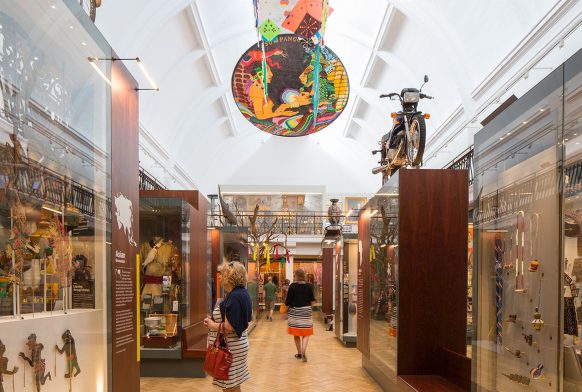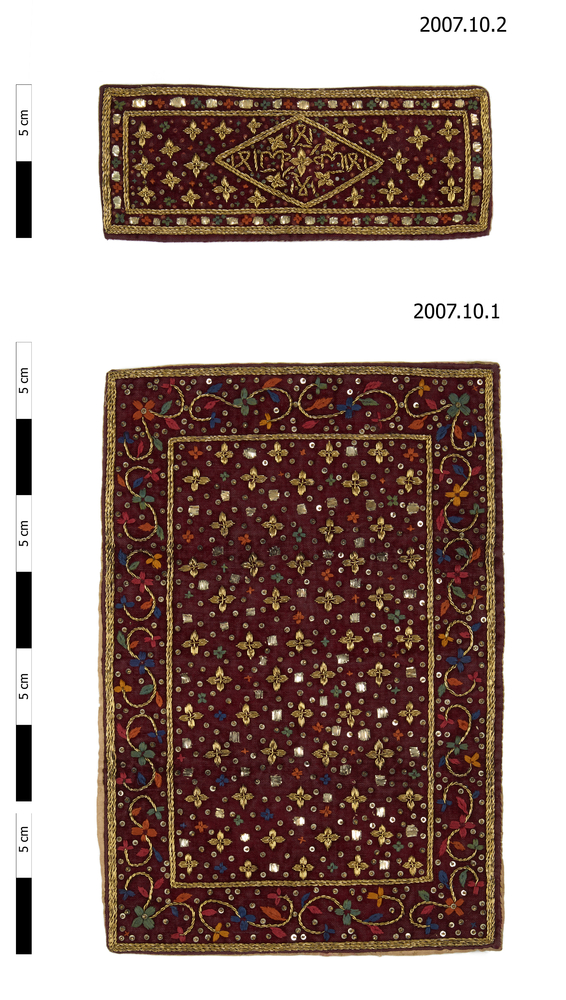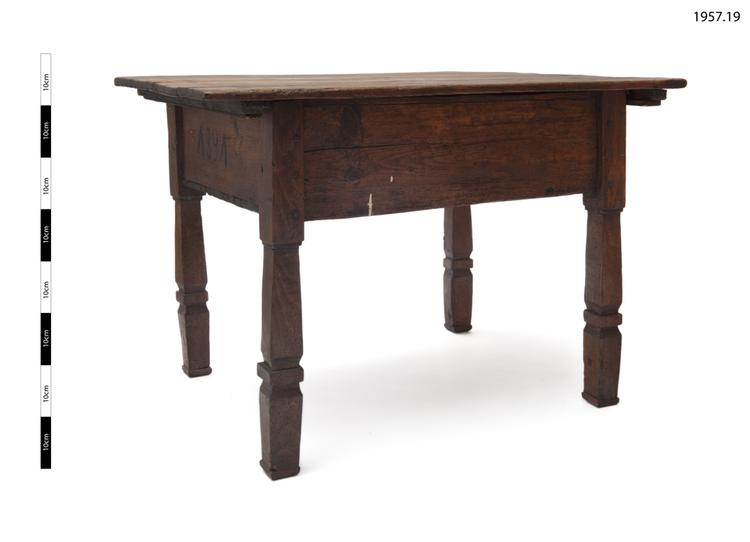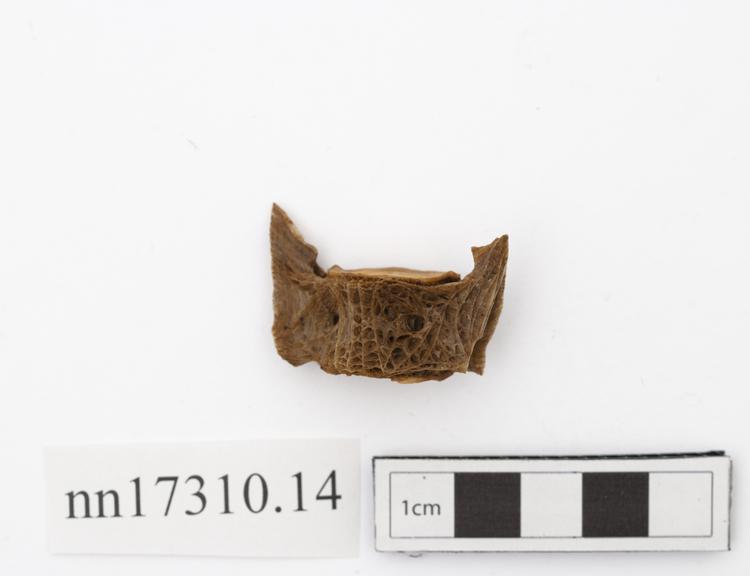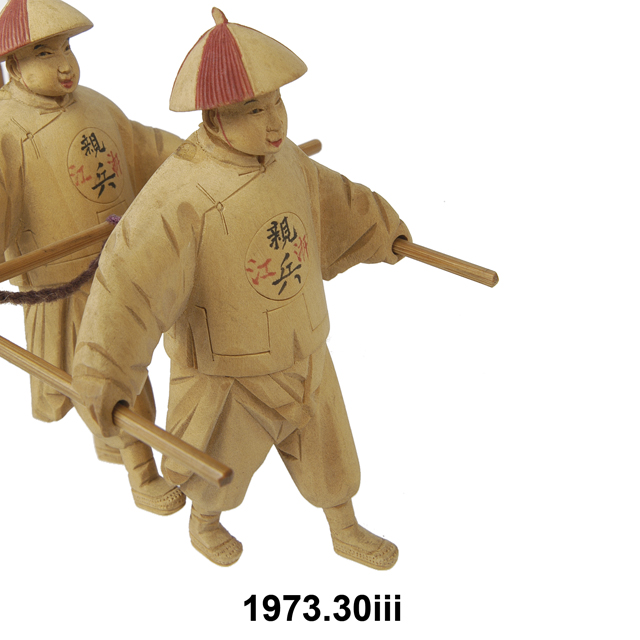
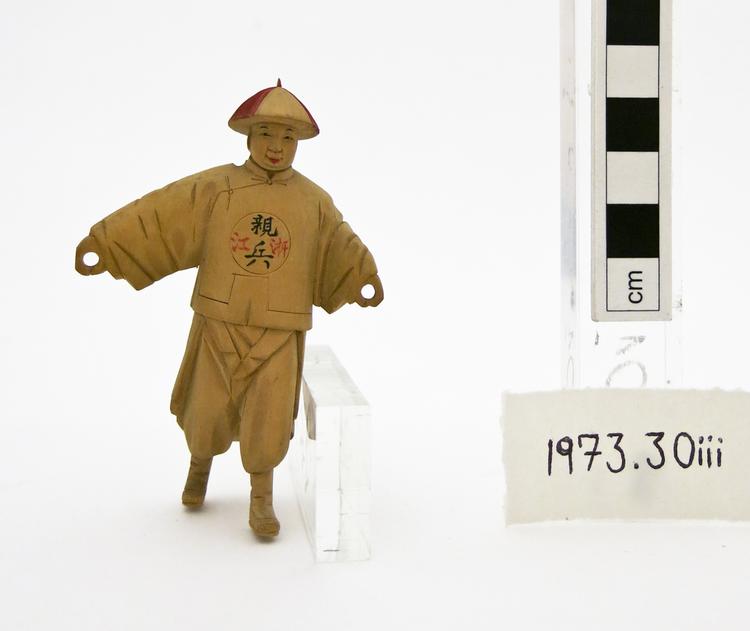
Model of palanquin bearer. Inscription on front of garment. The two black characters on front of the three palanquin bearers’ garments read: 親兵 ‘Qingbing’, which refers to the bodyguard, or guard for the home. They are recruited by the civil official such as the one sitting inside the palanquin, working as private soldiers to protect the official and his family.
Comment from Ni Yen Wu: The two black characters on front of these three palanquin bearers’ garments read: 親兵 ‘Qingbing’, which refers to the bodyguard, or guard for the home. They are recruited by the civil official such as the one sitting inside the palanquin, working as private soldiers to protect the official and his family. According to Filipiak (2014), the selecting criteria of the bodyguard included the three key aspects of economical power, physical power, and a sufficient number of males within the family. It is probable that these selection criteria were applied to all places where home guards were selected. The two characters which are also on their garments reads: 江浙 ‘Jiang Zhe’, which disclose the place they are from. Also known as ‘Zhejiang’, this place is an eastern coastal province of China. During the Qing dynasty, Zhejiang’s ports were important centres of international trade. Reference: Filipiak, K., 2015. Civil-Military Relations in Chinese History: From Ancient China to the Communist Takeover. Oxon: Routledge.



